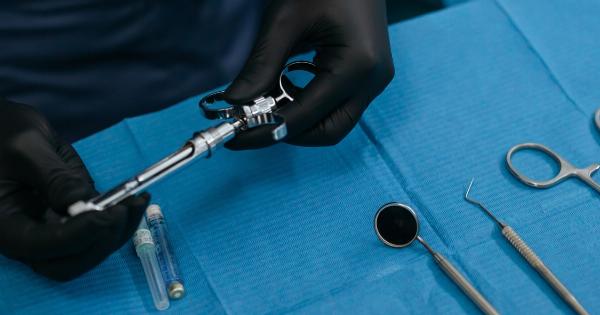Surgery is an important medical procedure that requires careful consideration and planning.
While the skills and experience of the surgeon are crucial factors in ensuring a successful outcome, timing is also a critical aspect that shouldn’t be overlooked. Research has shown that timing can significantly impact the results and recovery of a surgical procedure. In this article, we will explore the best days for surgery and why timing matters.
Why Does Timing Matter?
The concept of timing in surgery is based on several factors such as the body’s natural rhythms, cycles, and external influences.
These factors can have a profound impact on the body’s ability to heal, respond to medications, and even on the overall success of the surgical procedure itself. Various studies suggest that certain days of the week and times of the year may offer better outcomes for surgery.
The Influence of Days of the Week
Research has shown that the day of the week on which a surgery is performed can affect the patient’s recovery and outcomes.
According to a study published in the journal Archives of Surgery, patients who undergo surgery on a Friday have a 44% higher risk of death compared to those who undergo surgery on a Monday. This increased risk could be attributed to the fact that hospitals tend to be busier towards the end of the week, leading to a potential decrease in the quality of care.
A study conducted at the University of Colorado demonstrated that patients who undergo elective colorectal surgery on a Friday tend to experience more complications and require higher rates of readmission compared to those who have the same procedure on a Monday. The researchers concluded that these differences may be due to staffing and resource limitations on weekends.
The Weekend Effect
Another factor to consider is the “weekend effect.” This phenomenon suggests that patients who undergo surgery on weekends may face higher risks of complications and mortality compared to those who have surgery during the weekdays.
A study published in the journal BMJ found that patients who had emergency surgery on weekends had a 22% higher risk of death compared to those who received the same surgery on weekdays. This increased risk could be attributed to several factors, including reduced staffing levels and limited access to specialized services and support.
The Influence of Season
In addition to the day of the week, the timing of surgery within the year can also play a role in the patient’s outcomes.
Research suggests that certain seasons may be more favorable for surgery due to various factors, such as weather conditions and the prevalence of certain viruses and infections.
A study published in the journal PLOS Medicine found that the risk of surgical site infections (SSI) following orthopedic surgeries is significantly higher during the summer months compared to other seasons.
The researchers hypothesized that increased humidity and temperature during summer months provide a favorable environment for bacterial growth.
The Impact of Circadian Rhythms
Our bodies have natural internal clocks known as circadian rhythms that regulate various physiological processes. These rhythms play a crucial role in determining the body’s response to medications, anesthesia, and surgical stress.
Understanding and working with these rhythms can optimize surgical outcomes.
A study published in the journal Anesthesiology found that the time of day at which a surgery is performed can impact anesthesia requirements and postoperative recovery.
The researchers observed that patients who underwent surgery in the afternoon required 20% less anesthesia compared to those who had the same procedure in the morning. They also experienced less postoperative pain and nausea.
The Optimal Days for Surgery
Based on the insights from various studies, certain days of the week and seasons are considered to be optimal for surgery:.
Monday:
According to several studies, Mondays tend to be the best day for surgery. As the first day of the week, hospitals usually have lower caseloads and staff is well-rested after the weekend.
This can lead to improved patient outcomes and reduced risk of complications.
Tuesday:
Similar to Mondays, Tuesdays are often recommended for surgery. The staff is well-prepared and less fatigued compared to the later days of the week.
Spring and Autumn:
Season-wise, spring and autumn are considered to be ideal for surgeries. The weather is relatively stable, and there are usually fewer cases of seasonal infections. This can reduce the risk of surgical complications related to weather and infections.
Avoiding December:
December is generally not recommended for elective surgeries. The holiday season can impact hospital staffing levels, availability of specialized services, and overall resources.
It’s best to avoid scheduling surgeries during this period unless they are urgent or essential.
Conclusion
The best days for surgery are not merely arbitrary choices. They are based on scientific evidence that suggests specific days of the week and seasons may offer better patient outcomes and reduced risks of complications.
However, it’s essential to note that individual factors, urgency of the procedure, and surgeon availability should also be taken into account while determining the ideal timing for surgery. Consulting with a healthcare professional is crucial for personalized recommendations regarding the optimal timing for your specific surgical procedure.


























